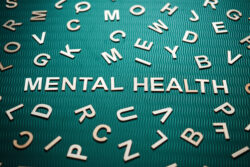The Top Warning Signs and Symptoms of Depression

Mental health awareness is at a record high in the States, but so are the cases of depression.
The more we learn about depression, the more it is revealed that this mental health condition can reveal itself in a variety of different symptoms in each individual.
How depression looks for you could be entirely different from how it looks for someone else. While one person might experience chronic sadness with random bouts of extreme energy, another might experience chronic lethargy that makes it difficult for them to even get out of bed in the morning.
The reason for this difference in symptoms is the different types of depression.
In this article, we’re going to discuss the different types of depression, as well as identify the top signs and symptoms of depression. We want to help you recognize them in either yourself or a loved one, and know when it’s time to seek professional support.
Different types of depression
The most common forms of depression are—major depressive disorder, bipolar disorder, postpartum depression and seasonal depression.
Major Depressive Disorder
(MDD) is the type of depression that usually comes to mind when most people think of depression. MDD can be mild, moderate, or severe. When it’s mild, the individual might experience minor disruptions in their lives, consistently or infrequently.
When moderate, MDD is beginning to cause a bit of dysfunction in multiple areas of their life. Severe MDD brings intense symptoms that can be traumatic to the individual and potentially dangerous without professional interference and assistance.
Bipolar disorder
Bipolar disorder is a form of depression that swings back and forth between outbursts of mania (abnormally elevated speech and/or behavior) and periods of depression. During the manic phase, it’s common for the individual to have—intense energy, vocalize wild ideas and engage in activities that will give them an adrenaline rush. The depressive episodes typically bring lethargy, self-isolation, insomnia or fatigue and loss of appetite.
Postpartum depression
Dangerously downplayed as “the baby blues” — postpartum is a form of depression that happens after a woman has given birth and it affects thousands of mothers every year. The causes can vary, but they have been specifically linked to extreme hormonal shifts. When these hormonal shifts are paired with little-to-no sleep and not enough nutrition, it contributes to an imbalance of chemicals in the brain.
This combination of imbalanced hormones and chemicals, in addition to a wide variety of other factors, can lead to postpartum psychosis. This is an evolution of postpartum depression where the depression is accompanied by hallucinations, delusions, confusion, as well as getting “stuck” in dazed or trance-like moments.
Seasonal Affective Disorder
(SAD) often referred to as seasonal depression — a cyclical form of depression that follows a seasonal pattern. While many consider it only to be a “winter problem,” seasonal depression is known to affect people during each phase of the year.
Signs and symptoms of depression
Depression will manifest different symptoms in each person. Not only because there are different types of depression, but because depression affects each person uniquely based on individual factors such as diet, environment and relationships.
There are common signs and symptoms of depression, however. Symptoms to look out for in yourself include:
- Feelings of emptiness, hopelessness or despair
- Feelings of intense anger, even over small matters
- Loss of interest in previous passions and hobbies
- Sleep pattern dysfunction, such as insomnia or sleeping too much
- Chronic fatigue or lack of energy that makes even small tasks exhausting
- Difficulty focusing, thinking and remembering things
- Frequent suicidal thoughts or behaviors
Signs your loved one might be suffering from depression include:
- Angry or irritable outbursts, even over seemingly small matters
- Withdrawal from usual social interactions or gatherings
- Loss of interest in previous passions and hobbies
- Frequent mentions or symptoms of exhaustion
- Difficulty focusing during conversations or struggling complete thoughts and sentences
- Vocalizations of self-loathing or self-beratement
- Recurring mentions of death or sudden morbid curiosity
If you or someone you love is exhibiting one or several of the above symptoms, reach out to us and we’ll help you figure out what to do and where to go from here.
Receive confidential support today
Pyramid Healthcare is a leading provider of client-focused care, built around the mission of identifying individual human needs so as to give personalized solutions that will radically improve their quality of life.
We offer therapy, rehabilitation, in-person counseling as well as telehealth services in order to work around your schedule so you don’t have to sacrifice your lifestyle for recovery.
To learn more about which of our services is the right fit for you fill out a form today and we will contact you.
Mental health awareness is at a record high in the States, but so are the cases of depression.
The more we learn about depression, the more it is revealed that this mental health condition can reveal itself in a variety of different symptoms in each individual.
How depression looks for you could be entirely different from how it looks for someone else. While one person might experience chronic sadness with random bouts of extreme energy, another might experience chronic lethargy that makes it difficult for them to even get out of bed in the morning.
The reason for this difference in symptoms is the different types of depression.
In this article, we’re going to discuss the different types of depression, as well as identify the top signs and symptoms of depression. We want to help you recognize them in either yourself or a loved one, and know when it’s time to seek professional support.
Different types of depression
The most common forms of depression are—major depressive disorder, bipolar disorder, postpartum depression and seasonal depression.
Major Depressive Disorder
(MDD) is the type of depression that usually comes to mind when most people think of depression. MDD can be mild, moderate, or severe. When it’s mild, the individual might experience minor disruptions in their lives, consistently or infrequently.
When moderate, MDD is beginning to cause a bit of dysfunction in multiple areas of their life. Severe MDD brings intense symptoms that can be traumatic to the individual and potentially dangerous without professional interference and assistance.
Bipolar disorder
Bipolar disorder is a form of depression that swings back and forth between outbursts of mania (abnormally elevated speech and/or behavior) and periods of depression. During the manic phase, it’s common for the individual to have—intense energy, vocalize wild ideas and engage in activities that will give them an adrenaline rush. The depressive episodes typically bring lethargy, self-isolation, insomnia or fatigue and loss of appetite.
Postpartum depression
Dangerously downplayed as “the baby blues” — postpartum is a form of depression that happens after a woman has given birth and it affects thousands of mothers every year. The causes can vary, but they have been specifically linked to extreme hormonal shifts. When these hormonal shifts are paired with little-to-no sleep and not enough nutrition, it contributes to an imbalance of chemicals in the brain.
This combination of imbalanced hormones and chemicals, in addition to a wide variety of other factors, can lead to postpartum psychosis. This is an evolution of postpartum depression where the depression is accompanied by hallucinations, delusions, confusion, as well as getting “stuck” in dazed or trance-like moments.
Seasonal Affective Disorder
(SAD) often referred to as seasonal depression — a cyclical form of depression that follows a seasonal pattern. While many consider it only to be a “winter problem,” seasonal depression is known to affect people during each phase of the year.
Signs and symptoms of depression
Depression will manifest different symptoms in each person. Not only because there are different types of depression, but because depression affects each person uniquely based on individual factors such as diet, environment and relationships.
There are common signs and symptoms of depression, however. Symptoms to look out for in yourself include:
- Feelings of emptiness, hopelessness or despair
- Feelings of intense anger, even over small matters
- Loss of interest in previous passions and hobbies
- Sleep pattern dysfunction, such as insomnia or sleeping too much
- Chronic fatigue or lack of energy that makes even small tasks exhausting
- Difficulty focusing, thinking and remembering things
- Frequent suicidal thoughts or behaviors
Signs your loved one might be suffering from depression include:
- Angry or irritable outbursts, even over seemingly small matters
- Withdrawal from usual social interactions or gatherings
- Loss of interest in previous passions and hobbies
- Frequent mentions or symptoms of exhaustion
- Difficulty focusing during conversations or struggling complete thoughts and sentences
- Vocalizations of self-loathing or self-beratement
- Recurring mentions of death or sudden morbid curiosity
If you or someone you love is exhibiting one or several of the above symptoms, reach out to us and we’ll help you figure out what to do and where to go from here.
Receive confidential support today
Pyramid Healthcare is a leading provider of client-focused care, built around the mission of identifying individual human needs so as to give personalized solutions that will radically improve their quality of life.
We offer therapy, rehabilitation, in-person counseling as well as telehealth services in order to work around your schedule so you don’t have to sacrifice your lifestyle for recovery.
To learn more about which of our services is the right fit for you fill out a form today and we will contact you.







